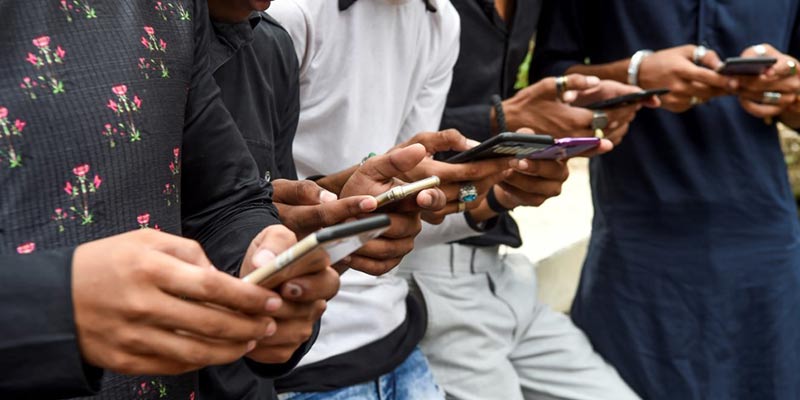- India
- Mar 16
Explainer - IT Act, 2000
• The ministry of information & broadcasting (I&B) has taken action in coordination with various intermediaries, to block 18 OTT platforms publishing obscene, vulgar, and in some instances, pornographic content.
• As many as 19 websites, 10 apps (seven on Google Play Store, three on Apple App Store), and 57 social media accounts associated with these platforms have been disabled for public access in India.
• The decision to act against the OTT platforms was taken under the provisions of the Information Technology Act, 2000 in consultation with other ministries/departments of the government, and domain experts specialising in media and entertainment, women’s rights, and child rights.
• The content was determined to be prima facie in violation of Section 67 and 67A of the IT Act, Section 292 of the IPC, and Section 4 of the Indecent Representation of Women (Prohibition) Act, 1986.
• The IT Act penalises publishing or transmission of material containing sexually explicit act in electronic form (section 67A and 67B) and publishing or transmitting of obscene material in electronic form (section 67), and makes them punishable with imprisonment for a period that may extend to three and five years respectively, and as per section 77B such cybercrimes are cognizable offences.
Information Technology Act, 2000 (IT Act)
• The Information Technology Act, 2000 (IT Act) the principal Act governing the entire cyberspace in India.
• It was last amended in 2008.
• The IT Act is an important gatekeeper legislation that protects the rights to privacy of individuals utilising the electronic and internet enabled services and equipments provided by internet service providers in the country.
• The IT Act penalises various cybercrimes relating to computer resources, including dishonestly or fraudulently accessing a computer resource without the permission of its owner commonly referred to as hacking (section 66), identity theft (section 66C), cheating by impersonation (section 66D), violation of bodily privacy (section 66E), publishing or transmitting of obscene material in electronic form (section 67), and publishing or transmission of material containing sexually explicit act in electronic form (section 67A and 67B) and tampering with computer source documents (section 65), etc.
• The ministry of electronics and information technology (MeitY) is the custodian of the IT Act.
The comprehensive legal framework of the IT Act, 2000 and its amendment provides for:
i) Enabling regime for legal recognition of e-commerce, e-governance, electronic records & transactions, e-signature.
ii) Controller of Certifying Authority (CCA)
iii) Adjudication and appellate mechanism for cyber contraventions.
iv) Cybercrimes with criminal punishment/ penalties provided (vis-à-vis physical crimes under IPC).
These include effective deterrence provisions (Sections 43, 43A, 65, 66, 66B, 66C, 66D, 66E, 66F, 67, 67A, 67B, 70, 72 & 72A) in terms of compensation/penalty and punishment to deal with cybercrimes such as tampering with computer source documents, damage to computer system, computer related offences, sensitive personal data leak, identity theft, cheating by personation, violation of privacy, cyber terrorism, online pornography including child pornography, unauthorised access to protected system, breach of confidentiality and privacy, breach of lawful contract, etc.
v) Internet-enabled businesses (‘intermediaries’) including social media platforms and mobile applications: Intermediary Rules
vi) Cybersecurity through institutional framework of CERT-In, National Critical Information Infrastructure Protection Centre (NCIIPC). It covers collection and sharing of information related to cyber incidents (Sections 69B & 70B) for effective pro-active/reactive actions by CERT-In and investigative actions by law enforcement agencies; protection of critical information infrastructure (Section 70A).
vii) Blocking of information from public access under section 69A and the rules thereunder in specific conditions, only in the interest of:
a) sovereignty and integrity of India
b) defence of India
c) security of the State
d) friendly relations with foreign States
e) public order
f) for preventing incitement to the commission of any cognizable offence relating to above.
viii) Privacy & security of data related issues (section 43A) (limited to Sensitive Personal Information) and Breach of lawful contract (section 72A). Section 43A of the Act provides for the right of individual regarding protection of sensitive personal data or information and also compensation to be paid to the affected users in case of unauthorised access of information and leakage of sensitive personal information (including financial information such as Bank account or credit card or debit card or other payment instrument details) respectively.
Section 43A also provides for the due diligence to be followed by the online platforms (body corporate) and are prescribed in the Information Technology (Reasonable Security Practices and Procedures and Sensitive Personal Data and Information) Rules, 2011.
Also, section 72A of the IT Act provides for punishment for disclosure of information in breach of the lawful contract.
ix) Takedown/removal of any information appearing on intermediary platforms which are violative of any law for the time being in force by the appropriate government or its agency under section 79(3)(b).
Manorama Yearbook app is now available on Google Play Store and iOS App Store

